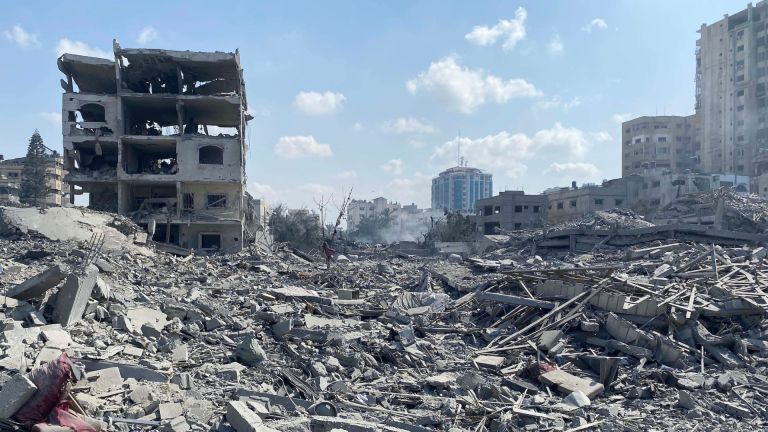According to a Sunday Times investigation, for five weeks the Government “sleepwalked into disaster”. Crucially it briefed journalists that it would follow a “herd immunity” strategy, letting the virus rip through the population until enough people had acquired immunity.
That’s might be appropriate for influenza, but scientists in China were already warning that this was a disease more like SARS, and calling for lockdowns and travel bans. Herd immunity was quickly abandoned, and the Government denies ever following it. But the damage was done.
Then came a series of quantifiable screw-ups. The PPE shortage was a product of fragile supply chains and de-prioritised pandemic plans. The test-and-trace fiasco saw public health systems bypassed in order to create a hugely expensive privatised system that, in the first wave, did not work.
Johnson’s political philosophy tells him to err on the side of doing as little as possible, until the last moment
The decision to shunt the pandemic into the elderly care home sector — by transferring 25,000 untested patients from hospital and advising that PPE was not essential — was clear and, according to Amnesty International, a violation of the human rights of tens of thousands of people.
Meanwhile, according to one study, the failure to impose flight restrictions allowed 190,000 people to enter Britain from Wuhan and other affected Chinese cities, in the first three months of 2020.
And then, from mid-September, as the second and more deadly wave took off, the whole story of reluctance and delay was repeated, only now at bigger scale.
Advertising helps fund Big Issue’s mission to end poverty
On 21 September SAGE advised Johnson that, with 90 per cent of the population still at risk from the virus, “not acting now to reduce cases will result in a very large epidemic with catastrophic consequences in terms of direct Covid-related deaths and the ability of the health service to meet needs”.
SAGE called for a circuit-breaker lockdown and another shutdown of bars, restaurants and hairdressers. The advice was rejected and the second wave took off.
Only on October 31 was the Government bounced into a new, four-week lockdown. It slackened the lockdown on December 2 and encouraged people to prepare to spend Christmas with their families, only to reverse the policy at the last moment. By 16 December, cases per day had hit 35,000 – already above the second-wave peak.
If these were a series of unconnected accidents you could wait for answers. But they are linked by a golden threat: it’s called conservatism. Conservatives expect the market, not the state, to solve most problems and want government by inclination to intervene as little as possible into the economy and people’s lives.
Whenever Boris Johnson reads scientific advice, he also has, in his ear, columnists from the Spectator and hosts from TalkRadio telling him to ignore it. The arbiter is the political philosophy in his head, which tells him to err on the side of doing as little as possible, until the last moment.
Only in January 2021 did we finally get what, according to Home Secretary Priti Patel, she called for last March: a serious shutdown of international travel links and mandatory quarantine.
Advertising helps fund Big Issue’s mission to end poverty
But this is not down to one person. Our entire public health system has failed. If you think the word failure too strong, look at the rock concerts being staged in New Zealand, or the buzzing nightlife in South Korea and Taiwan, or Australia’s beaches – back to life in the Aussie summer because they took decisive action in 2020.
Actions should have consequences, and if the efforts of doctors, nurses and vaccinators bring relief from the current wave by the school half term, that’s when a public inquiry into the Covid fiasco should start. This government is more than capable of inflicting failure after failure, way into the future, because it will not learn.










